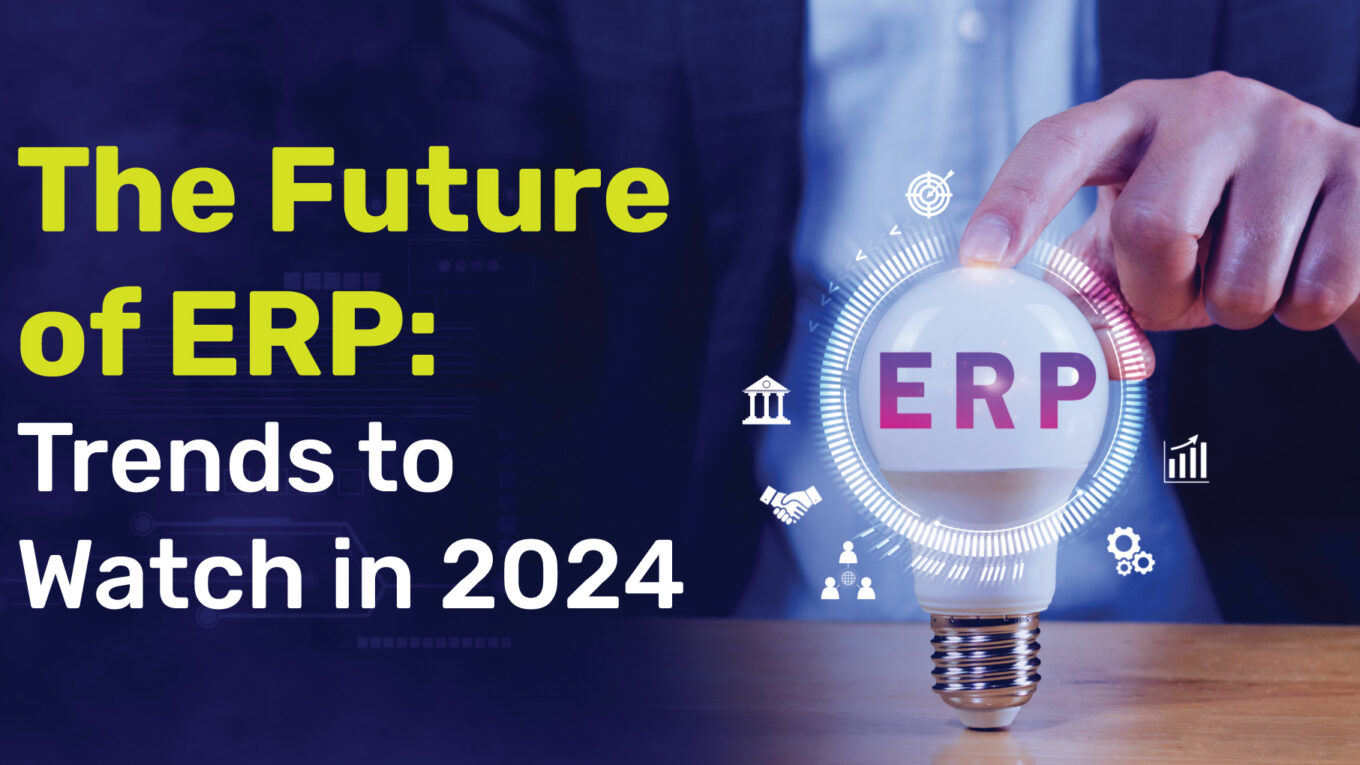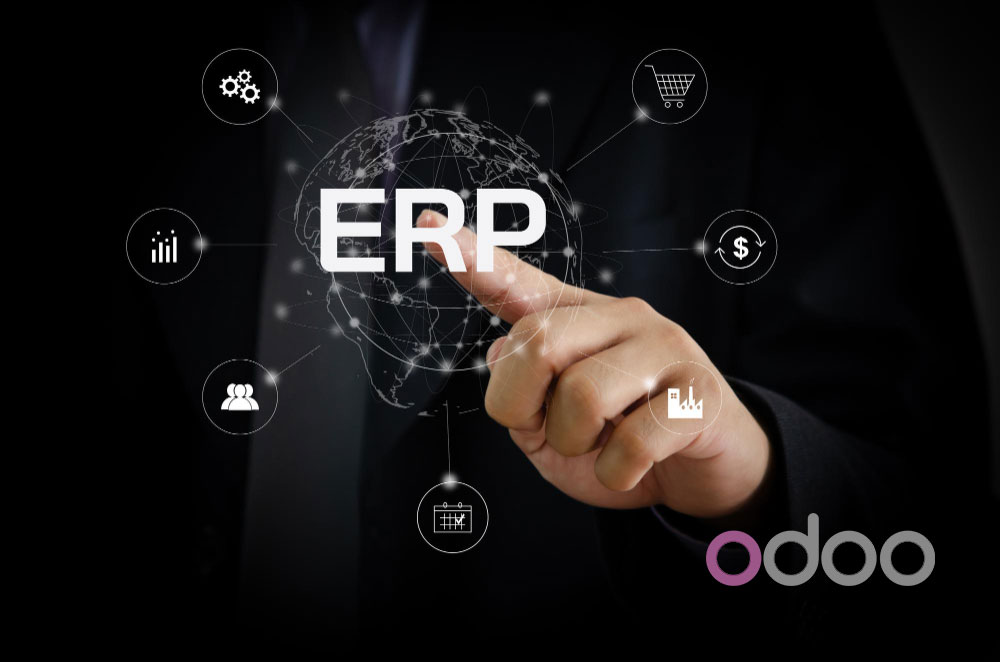The Future of ERP: Trends to Watch in 2024
Enterprise Resource Planning (ERP) systems have become the backbone of modern businesses, streamlining operations and providing valuable insights. As technology continues to evolve at a rapid pace, it’s crucial for organizations to stay ahead of the curve and understand the emerging trends that will shape the future of ERP.
This blog post aims to explore the key trends that are driving the evolution of ERP systems in 2024. By understanding these trends, businesses can make informed decisions about their ERP investments and ensure they remain competitive in the digital age.
The 8 Biggest ERP Trends in 2024
While not all of these trends may be directly applicable to your business, understanding the broader landscape of ERP technology is essential for staying competitive and future-proof. Here are some key trends shaping the future of ERP:
1. The Rise of Cloud-Based ERP Solutions
Cloud-based ERP solutions have been gaining popularity in recent years, and this trend is expected to continue in 2024. Cloud ERP offers several advantages over traditional on-premises systems, including:
- Scalability and flexibility: Cloud ERP systems can easily scale up or down to meet the changing needs of your business. This is particularly beneficial for businesses that experience rapid growth or seasonal fluctuations.
- Reduced IT costs: Cloud ERP providers handle the maintenance, updates, and security of the software, reducing the need for in-house IT resources.
- Improved accessibility: Cloud ERP can be accessed from anywhere with an internet connection, making it easier for employees to collaborate and access data.
When considering ERP implementation, many businesses find that cloud solutions facilitate a smoother transition and greater flexibility.
2. AI and Machine Learning Integration
Artificial Intelligence (AI) and Machine Learning (ML) are revolutionizing the way ERP systems operate. By integrating these technologies, businesses can:
- Transform ERP functionalities: AI and ML can be used to automate tasks, improve data accuracy, and provide predictive insights. For example, AI-powered chatbots can provide customer support, and ML algorithms can analyze sales data to identify trends and forecast future demand.
- Enable predictive analytics: AI and ML can help businesses make data-driven decisions by analyzing historical data and predicting future outcomes. This can be used to optimize inventory management, improve supply chain efficiency, and identify potential risks.
- Automate routine tasks and enhance user experience: AI and ML can automate repetitive tasks, freeing up employees to focus on more strategic activities. Additionally, these technologies can enhance the user experience by providing personalized recommendations and insights.
Organizations planning for ERP implementation should consider AI and ML capabilities to maximize efficiency and insight.
3. Enhanced Data Analytics and Reporting
Data is the lifeblood of any business, and ERP systems play a crucial role in collecting, storing, and analyzing data. In 2024, we can expect to see even more advanced data analytics and reporting capabilities within ERP systems.
- Importance of real-time data access: Businesses need access to real-time data to make informed decisions quickly. ERP systems with advanced data analytics capabilities can provide real-time insights into key metrics, such as sales, inventory levels, and financial performance.
- Advanced reporting tools and dashboards: Modern ERP systems offer a variety of reporting tools and dashboards that can be customized to meet specific business needs. These tools can help businesses visualize data, identify trends, and track performance against key metrics.
4. Focus on User Experience (UX)
User Experience (UX) is becoming increasingly important in ERP systems. As businesses seek to improve employee satisfaction and productivity, they are investing in ERP solutions that offer a more intuitive and user-friendly interface.
- Trends in UI/UX design for ERP systems: Modern ERP systems are incorporating design elements from consumer-facing applications, such as clean layouts, intuitive navigation, and personalized dashboards. Additionally, there is a growing trend towards voice-activated interfaces and augmented reality (AR) in ERP.
- The role of mobile access and user-friendly interfaces: With the increasing use of mobile devices, ERP systems need to be accessible and user-friendly on smartphones and tablets. This requires responsive design and intuitive interfaces that can be easily navigated on smaller screens.
- Importance of training and support for user adoption: To ensure successful user adoption, businesses need to invest in training and support programs. This includes providing comprehensive user manuals, online tutorials, and live training sessions.
For effective ERP implementation, training and user support are critical to driving adoption and ensuring that employees can leverage the system fully.
As businesses become more specialized, there is a growing demand for ERP solutions that are tailored to specific industries. These industry-specific ERP solutions can provide businesses with the functionality and features they need to streamline their operations and improve efficiency.
5. Industry-Specific ERP Solutions
- Customization for different industries (e.g., healthcare, manufacturing): Industry-specific ERP solutions can be customized to meet the unique requirements of different industries. For example, a healthcare ERP system may include features for managing patient records, billing, and compliance with healthcare regulations.
- Benefits of tailored solutions versus one-size-fits-all: Industry-specific ERP solutions offer several benefits over generic solutions, including:
- Improved efficiency and productivity
- Reduced implementation time and costs
- Enhanced compliance with industry regulations
- Future of niche ERP providers: As businesses continue to specialize, we can expect to see a growth in niche ERP providers that offer tailored solutions for specific industries.
When engaging in ERP consulting, it’s essential to explore solutions that are tailored to your specific industry for maximum benefit.
6. Integration with Other Technologies
In today’s interconnected business world, it’s essential for ERP systems to be able to integrate with other technologies. This allows businesses to streamline their operations, improve data accuracy, and gain valuable insights.
- The importance of API and interoperability: APIs (Application Programming Interfaces) enable different software applications to communicate and exchange data. Interoperability is the ability of systems to work together seamlessly. By integrating with other systems through APIs, businesses can create a more unified and efficient IT environment.
- Trends in IoT (Internet of Things) and ERP integration: The IoT is rapidly growing, and there is increasing interest in integrating IoT devices with ERP systems. This can provide businesses with real-time data on operations, inventory levels, and equipment performance.
- Benefits of integrating with CRM, HRM, and other systems: Integrating ERP with other systems, such as CRM (Customer Relationship Management) and HRM (Human Resource Management), can offer several benefits, including:
- Improved data accuracy and consistency
- Enhanced customer service
- Streamlined business processes
- Better decision-making
7. Emphasis on Cybersecurity
As cyber threats continue to evolve, cybersecurity has become a top priority for businesses of all sizes. ERP systems, which store sensitive data, are particularly vulnerable to cyber attacks.
- Growing concerns about data security and privacy: Data breaches can have serious consequences for businesses, including financial loss, damage to reputation, and legal penalties. As the volume and sophistication of cyber attacks increase, businesses are becoming increasingly concerned about protecting their data.
- Best practices for securing ERP systems: There are several best practices for securing ERP systems, including:
- Regularly updating software and patches
- Implementing strong access controls
- Using encryption to protect data
- Conducting regular security audits
- The role of compliance in ERP cybersecurity measures: Many industries have specific regulations and standards related to data security and privacy. By complying with these regulations, businesses can demonstrate their commitment to data protection and reduce their risk of legal penalties.
Incorporating cybersecurity measures into your ERP implementation is critical to protecting sensitive business data and maintaining compliance.
8. Sustainability and Ethical Practices
There is a growing demand for businesses to adopt sustainable practices and operate ethically. ERP systems can play a crucial role in helping businesses track and improve their sustainability performance.
- Increasing demand for sustainable business practices: Consumers, investors, and employees are increasingly concerned about sustainability and ethical practices. Businesses that can demonstrate their commitment to these values are more likely to succeed in today’s competitive market.
- How ERP can help track and improve sustainability metrics: ERP systems can be used to track and analyze various sustainability metrics, such as energy consumption, waste generation, and carbon emissions. By identifying areas for improvement, businesses can take steps to reduce their environmental impact.
- Examples of ERP systems promoting ethical operations: Some ERP systems include features that promote ethical operations, such as fair labor practices and supply chain transparency. These features can help businesses ensure that their suppliers and partners are adhering to ethical standards.
Conclusion
In summary, the future of ERP is marked by several key trends that will shape the way businesses operate. These trends include the rise of cloud-based ERP solutions, the integration of AI and machine learning, enhanced data analytics and reporting, a focus on user experience, industry-specific ERP solutions, integration with other technologies, an emphasis on cybersecurity, and a commitment to sustainability and ethical practices.
As organizations consider ERP implementation, adapting to these trends is crucial. By doing so, businesses can ensure that their ERP systems remain relevant, efficient, and effective in the digital age. It’s time to assess your current ERP solution and consider whether it’s equipped to meet the challenges and opportunities of the future.



